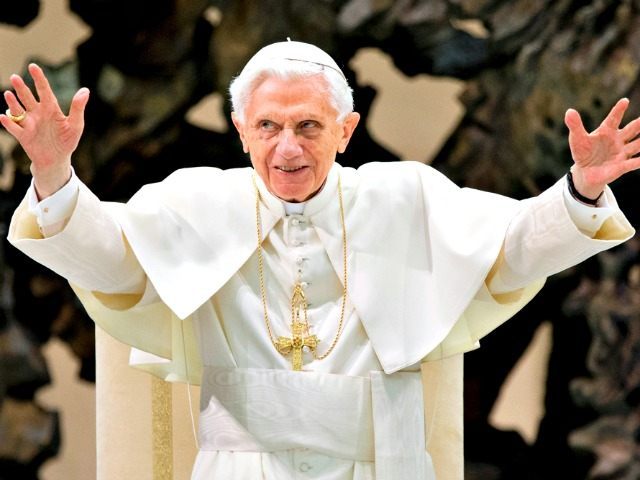Pope Benedict was universally pilloried by the media for his famous 2006 Regensburg address, in which he commented on the historical relationship between Islam and violence. But now even the mainstream media are finding themselves forced to ask whether Benedict was right, and perhaps even prophetic in his statements.
In that talk, Benedict cited the 14th-century Byzantine emperor Manuel II Paleologus regarding the relationship between religion and violence. “Show me just what Mohammed brought that was new, and there you will find things only evil and inhuman, such as his command to spread by the sword the faith he preached,” the quote read.
Pope Benedict XVI, a scholar who wrote extensively about religious freedom as well as the proper relationship between church and state, always insisted on speaking about religions (plural) rather than religion (singular). He based his reflections not only on a solid philosophical footing, but also on impartial observation of what religions actually propose and the sort of societies they create.
In his 2009 encyclical letter Caritas in Veritate, Benedict made the case that not all religions contribute equally to the development of individuals and societies. Some, in fact, may obstruct it. “Religious freedom does not mean religious indifferentism,” he wrote, “nor does it imply that all religions are equal.”
Benedict also proposed that in order to safeguard and promote the common good, political authority must in some way discern among different religions. “Discernment is needed regarding the contribution of cultures and religions,” Benedict stated, “especially on the part of those who wield political power.”
The Pope noted that certain religions “teach brotherhood and peace and are therefore of enormous importance to integral human development,” yet other traditions “do not fully embrace the principle of love and truth and therefore end up retarding or even obstructing authentic human development.”
Even before becoming pope, Joseph Ratzinger wrote on the differences between religions, noting that “anyone who sees in the religions of the world only reprehensible superstition is wrong” but also “anyone who wants only to give a positive evaluation of all religions… is equally wrong.”
In his own critical considerations of religions, Ratzinger wrote with brutal honesty, observing that there are “deviant, esoteric forms of religion on offer” as well as “pathological” forms of religion. He wrote of religions that are “obviously sick” and religions that are “destructive for man.” He asserted, moreover, that with the detachment of religion from reason, “pathological forms of religion are constantly increasing.”
But even beyond the question of Islam’s relationship to violence, Ratzinger also invited his readers to look more deeply at the nature of Islam itself and its understanding of the human person and society, especially as regards the separation of church and state—something that Miroslav Volf seems to take for granted.
Ratzinger wrote that “The interplay of society, politics, and religion has a completely different structure in Islam” than it does in the West. He went on to say that much of today’s discussion in the West regarding Islam “presupposes that all religions have basically the same structure, that they all fit into a democratic system with its regulations and the possibilities provided by these regulations.”
Yet this is not consistent with the facts, he continued, but rather, it “contradicts the essence of Islam, which simply does not have the separation of the political and the religious sphere that Christianity has had from the beginning.”
This underlying difference in understanding goes well beyond political or social theory regarding the nature of the state. It touches virtually every aspect of human existence.
Ratzinger continued: “Islam has a total organization of life that is completely different from ours; it embraces simply everything. There is a very marked subordination of woman to man; there is a very tightly knit criminal law, indeed, a law regulating all areas of life, that is opposed to our modern ideas about society.”
The conclusion he reached was remarkably severe. He warned that we must have a clear understanding that Islam “is not simply a denomination that can be included in the free realm of a pluralistic society.”
This is a sober message, but one that needs to be heard whether we like it or not.
Follow Thomas D. Williams on Twitter @tdwilliamsrome

COMMENTS
Please let us know if you're having issues with commenting.